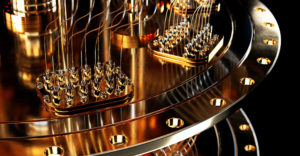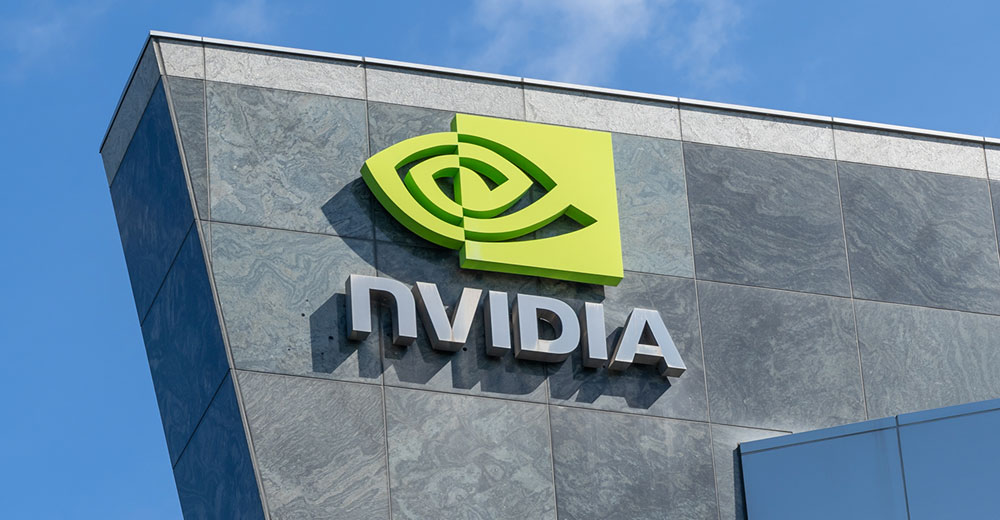Google announced a major step forward in the development of a commercial quantum computer on Tuesday, releasing test results for its Willow quantum chip.
Those results show that the more qubits Google used in Willow, the more errors it reduced and the more quantum the system became.
“Google’s achievement in quantum error correction is a significant milestone toward practical quantum computing,” said Florian Neukart, chief product officer at Terra Quantum, a developer of quantum algorithms, computing solutions, and security applications, in Saint Gallen, Switzerland.
“It addresses one of the largest hurdles — maintaining coherence and reducing errors during computation,” he told TechNewsWorld.
Qubits, the basic information unit in quantum computing, are extremely sensitive to their environment. Any disturbances around them can cause them to lose their quantum properties, which is called decoherence. Maintaining qubit stability — or coherence — long enough to perform useful computations has been a significant challenge for developers.
Decoherence also makes quantum computers error-prone, which is why Google’s announcement is so important. Effective error correction is essential to the development of a practical quantum computer.
“Willow marks an important milestone on the journey toward fault-tolerant quantum computing,” said Rebecca Krauthamer, CEO of QuSecure, a maker of quantum-safe security solutions in San Mateo, Calif.
“It’s a step closer to making quantum systems commercially viable,” she told TechNewsWorld.
Progress Toward Large-Scale Quantum Computing
In a company blog, Google Vice President of Engineering Hartmut Neven explained that researchers tested ever-larger arrays of physical qubits, scaling up from a grid of 3×3 encoded qubits, to a grid of 5×5, to a grid of 7×7. With each advance, they cut the error rate in half. “In other words, we achieved an exponential reduction in the error rate,” he wrote.
“This historic accomplishment is known in the field as ‘below threshold’ — being able to drive errors down while scaling up the number of qubits,” he continued.
“The machines are very sensitive, and noise builds up both from any external influence as well as from use itself,” said Simon Fried, vice president for business development and marketing at Classiq, a developer of software for quantum computers, in Tel Aviv, Israel.
“Being able to minimize noise or compensate for it makes it possible to run longer, more complex programs,” he told TechNewsWorld.
“This is significant progress in terms of chip tech because of the inherent stability of the hardware as well as its ability to control noise,” he added.
Neven also noted that as the first system below the threshold, this is the most convincing prototype for a scalable logical qubit built to date. “It’s a strong sign that useful, very large quantum computers can indeed be built,” he wrote. “Willow brings us closer to running practical, commercially-relevant algorithms that can’t be replicated on conventional computers.”
Willow’s Implications for the Multiverse and Security
Google also released data on Willow’s performance based on a common quantum computer test known as the random circuit sampling (RCS) benchmark. “[I]t checks whether a quantum computer is doing something that couldn’t be done on a classical computer,” Neven explained. “Any team building a quantum computer should check first if it can beat classical computers on RCS; otherwise, there is strong reason for skepticism that it can tackle more complex quantum tasks.”
Neven called Willow’s performance on the RCS benchmark “astonishing.” It performed a computation in under five minutes that would take one of today’s fastest supercomputers 10 septillion years — that’s 10 followed by 25 zeroes.
“This mind-boggling number exceeds known timescales in physics and vastly exceeds the age of the universe,” he wrote. “It lends credence to the notion that quantum computation occurs in many parallel universes, in line with the idea that we live in a multiverse.”
Chris Hickman, chief security officer at Keyfactor, a digital identity management company in Cleveland, hailed Willow as “a significant milestone in quantum computing” but cautioned that Willow’s advanced quantum error correction brings the field closer to practical quantum applications, signaling that businesses need to prioritize preparation for the inevitable disruption of quantum computing in areas like encryption and security.
“While this development doesn’t immediately alter the expected timeline for quantum computers to break current encryption standards, it reinforces the idea that progress towards this milestone is accelerating,” he told TechNewsWorld.
“Practical use cases for quantum computers go beyond applications that stand to benefit businesses,” he said. “Bad actors will inevitably leverage the technology for their own nefarious benefit.”
“Hackers will leverage quantum computers to decrypt sensitive information, rendering legacy cryptographic methods obsolete,” he continued. “These include algorithms like RSA and ECC, which are currently considered unbreakable.”
Beware the Quantum Cure-All
Karl Holmqvist, founder and CEO of Lastwall, a provider of identity-centric and quantum-resilient technologies, in Mountain View, Calif., agreed that the rate of development of cryptographically relevant quantum computers is accelerating. “But I also understand that there are skeptics who think development is not as close as it seems or that it may never arrive,” he told TechNewsWorld.
“So, my question to everyone is this: Given that we will either deploy quantum-resilient solutions too early or too late, which scenario carries more risk?” he asked. “Would you rather understand the implications of post-quantum cryptographic deployments, test them in your environments, and be prepared to rapidly deploy when needed — or risk losing your secrets?”
In his blog, Neven also revealed why he changed his focus from artificial intelligence to quantum computing. “My answer is that both will prove to be the most transformational technologies of our time, but advanced AI will significantly benefit from access to quantum computing,” he wrote.
Quantum computing is inherently designed to tackle complex problems, so it could be very helpful with the development of AI, noted Edward Tian, CEO of GPTZero, maker of an AI detection platform in Arlington, Va. “However, we have seen instances of classical AI still being the better method,” he told TechNewsWorld.
“I came out of AI and entered the quantum computing world specifically because of the promise quantum computing has to unlock doors that remain shut in a classical computing world,” added QuSecure’s Krauthamer.
However, she had a word of caution about the technology. “A quantum computer is not simply a bigger, faster, more powerful computer,” she said. “It thinks in a fundamentally different way and, therefore, will solve different types of problems than we can today. It is wise to be skeptical if quantum computing is presented as a cure-all for challenging computation tasks.”

























































